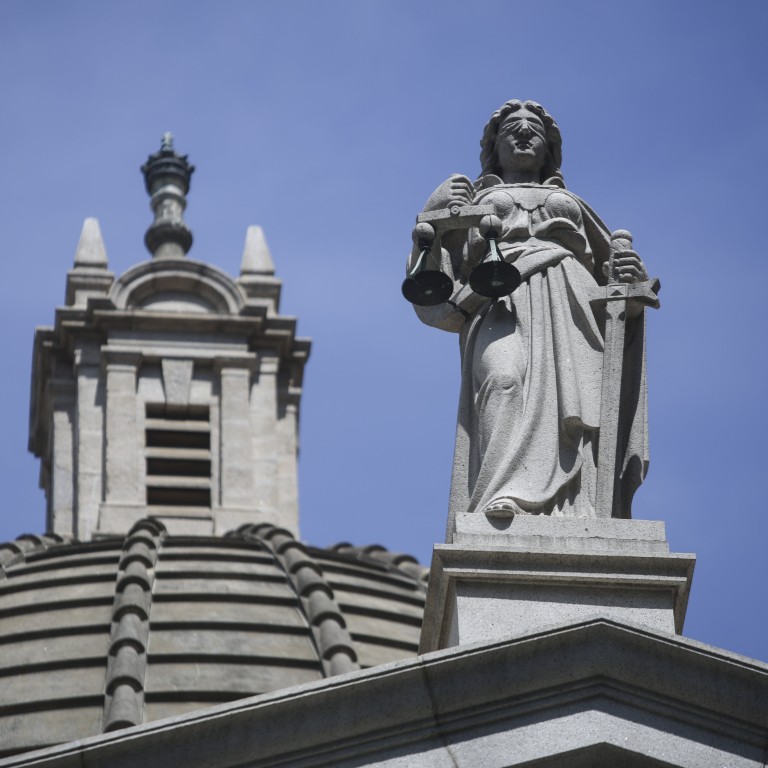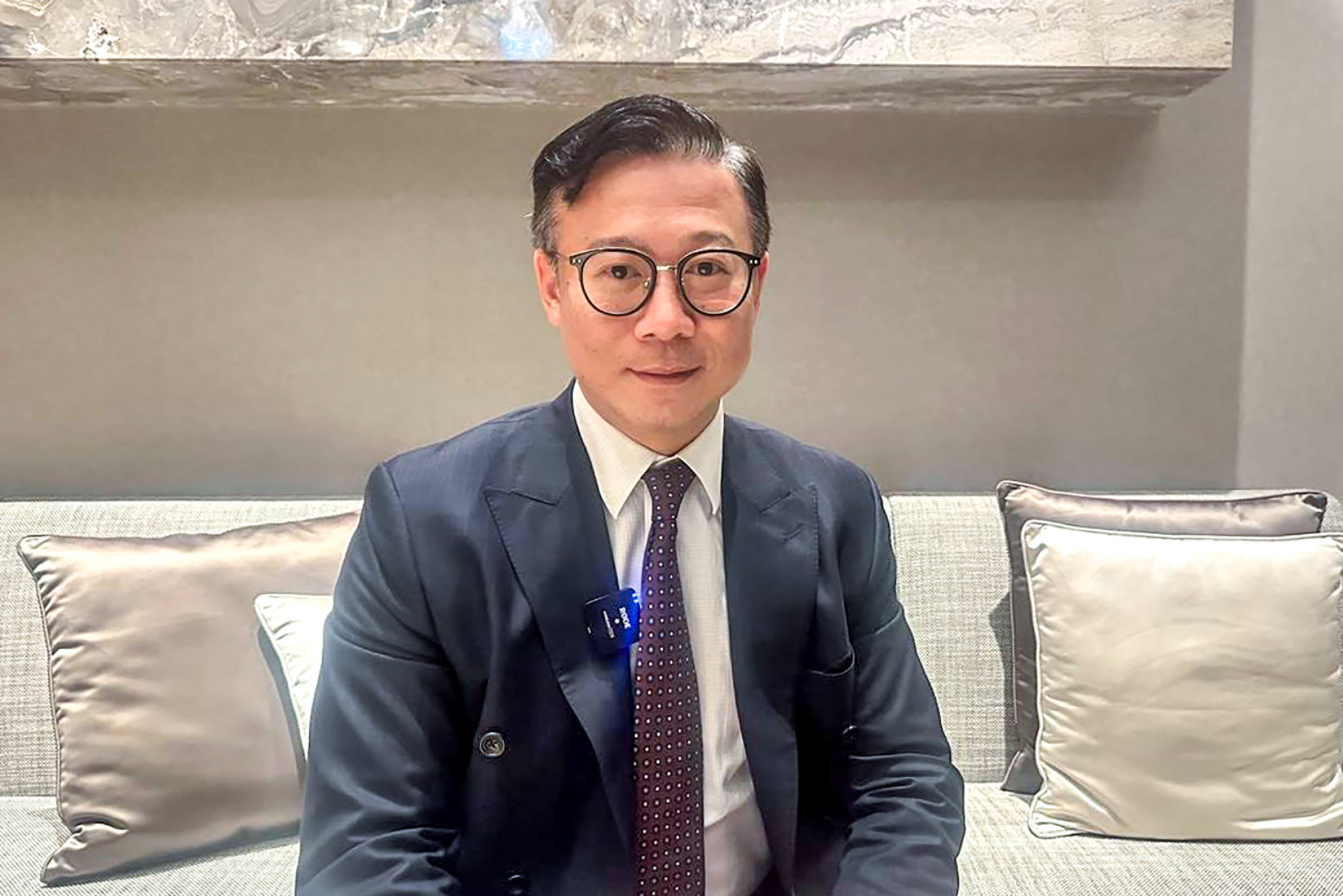
Foreign lawyers in national security cases still face Hong Kong’s immigration laws even if proposed vetting mechanism is not retrospective: deputy justice minister
- Deputy minister Horace Cheung’s remarks come after Secretary for Justice Paul Lam hinted lawyers could be barred even though a proposal does not apply to them
- Proposed legal amendments could give Hong Kong’s leader the final say on the role of overseas counsel in national security cases
Hong Kong’s deputy justice minister has highlighted the need for foreign lawyers previously hired for national security cases to comply with the city’s immigration laws even if a proposed vetting mechanism did not apply to them.
Deputy Secretary of Justice Horace Cheung Kwok-kwan comments on Sunday came after Secretary for Justice Paul Lam Ting-kwok earlier said the proposed legal amendment giving Hong Kong’s leader the final say on the role of foreign lawyers in national security cases would not be retrospective.
But Lam hinted that previous applications for foreign lawyers to be involved in national security cases could still be barred as there would be “other ways” to handle them, without specifying how this would be achieved or whether he was referring to jailed media tycoon Jimmy Lai Chee-ying’s attempt to hire British barrister Timothy Owen.

While Cheung on Sunday refused to comment on individual cases, the deputy minister said earlier ones involving overseas counsel that were not covered by the proposed mechanism would still be subject to other requirements.
“Foreign lawyers have to file an application and the court will exercise discretion based on public interest. Moreover, they have to comply with the laws in Hong Kong, including the Immigration Ordinance and other ordinances, to work in the city,” he explained.
Last November, the city’s top court upheld a decision to allow Owen to defend Lai, the founder of the now-closed Apple Daily newspaper, in his collusion case.
The move prompted Chief Executive John Lee Ka-chiu to seek an interpretation of the national security law from the National People’s Congress (NPC) Standing Committee, with China’s top legislative body issuing its ruling last December.
As Beijing left the matter to the city leader to decide, the administration proposed a legal amendment to introduce two new requirements for a foreign counsel to take up a national security case.
Legal change to overseas lawyers’ role in Hong Kong cases not retrospective
Barrister Ronny Tong Ka-wah, a member of the Executive Council, the city’s top advisory body, said the Court of Final Appeal earlier allowed Owen to work in the city based on a judicial point of view, but he would still need to obtain permission from the Immigration Department.
“Apart from a work permit, any foreigners working in Hong Kong also need to fulfil the government’s requirements, including those from the department. It is totally irrelevant to the court ruling,” he said.
Tong said he could not comment on whether the department would grant an entry permit to Owen, adding immigration officers did not explain their past decisions, which was similar to practices in other places.
Last month, Lai applied to the Court of First Instance asking it to declare that it would not let Beijing’s interpretation, which came after an earlier Court of Final Appeal decision sided with the defendant, affect his chances of keeping Owen as his counsel.
Lai’s legal team also asked the court to obtain a more general certificate from the chief executive to decide if his case would involve national security elements for any overseas lawyer he hired.

Lawmaker Lai Tung-kwok, a former security chief and director of immigration, said he believed the department would only review Owen’s visa application after the court made a decision on the writ filed by Lai last month.
“I believe the court ruling will affect the department’s decision,” Lai said. “It’s a prerequisite. If someone wants to come to Hong Kong to handle a lawsuit, why will the department let them in when this aim cannot be achieved?”
The legislator said foreigners could only work in Hong Kong if there was “no security objection” but he refused to further elaborate on what factors immigration would consider, adding that officers would normally need four to six weeks to reach a decision but complicated cases could take longer.
According to the department’s guidelines, an application for an employment visa will be considered if there was “no security objection” and no record of serious crime, but stopped short of providing further details.
Last month, the Department of Justice proposed a series of amendments to the Legal Practitioners Ordinance that would require courts to obtain the chief executive’s approval before a foreign lawyer was allowed to take on a national security case.
The city leader would be able to deny permission for the counsel to participate if the case was deemed “contrary to the interests of national security”.
Hong Kong leader to have final say over foreign lawyers at national security trials
Under the proposed changes, an overseas lawyer would first need to obtain a “Notice of Permission to Proceed” issued by the city leader before filing for ad hoc admission with the court.
The court would also be required to seek a certificate from the chief executive before granting a foreign lawyer admission, and these decisions would also be subject to a review mechanism led by the city leader.
Cheung said the mechanism could prevent defendants from abusing the judiciary by filing numerous applications to delay the cases, as well as wasting court resources and time.
He added that the chief executive was in a better position to decide on applications as the executive branch was more familiar with national security issues.

